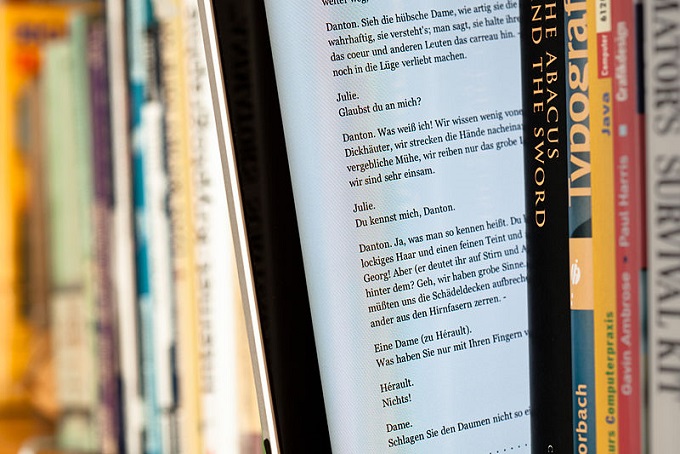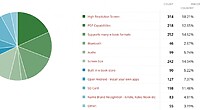
Indonesia has failed to embrace e-books in a meaningful way and digital sales only account for less than 2% of all book sales.
One of the big barriers in e-book adoption in Indonesia is primarily due to the e-book price from local authors. Raditya Dika, the most popular youth fiction author in Indonesia, recently published a book called Koala Kumal, which costs IDR 50,000 (US$3.60) for a physical copy. The digital format costs IDR 44,000 (US$3.17) even after discount.
On the other hand, the prices of imported books are much lower on digital. For example, at the time of writing, the paperback edition of The Martian by Andy Weir is IDR 225,000 (US$16) while on Google Play it is half that.
Google has a large market share in Indonesia, primarily because they support carrier billing from big three operators (XL, ISAT and TSEL). It is quite simple to buy content and just pay for it on your next phone bill.
The Indonesian e-book market remains stagnant suggests writer Anh-Minh. “There are just no e-readers around. In all the local electronics stores, they’re ridiculously hard to find. Merchants don’t think customers don’t want e-readers and customers aren’t buying them. Not to mention, tablets aren’t showing as much aggressive growth as smartphones are.”
e-readers and tablets might be dead in Indonesia, but the phone remains the top choice to read e-books. One of the companies to take advantage of the smartphone craze early on was Scoop. They launched an exclusive digital bookstore with Grammedia, one of Indonesia’s top publishers, and is currently offering 10,000 titles. Scoop, while still small, has “hit 500,000 downloads in 2013, with 85% of revenue from iOS and the rest from Android,” according to CEO Willson Cuaca.
In June 2015, Scoop realized that the average customer in Indonesia only spends about $3 US a month on e-books and this prompted them to launch an e-book subscription service, similar to Scribd and Kindle Unlimited.
Scoop has been the only game in town for a number of years, but this is all going to change. Russian-based e-book reading service Bookmate has just partnered with local telco Indosat for an subscription service. The Bookmate service is now live, but there has been little to no press and I think its floundering right now.
The big problem with the Indonesian market is similar to what is happening in Vietnam. Piracy remains rampant and this is preventing publishers from committing their full front-list to the e-book format. If you can’t read the latest bestseller in the digital format, you will just buy the print book instead.
Michael Kozlowski is the editor-in-chief at Good e-Reader and has written about audiobooks and e-readers for the past fifteen years. Newspapers and websites such as the CBC, CNET, Engadget, Huffington Post and the New York Times have picked up his articles. He Lives in Vancouver, British Columbia, Canada.
